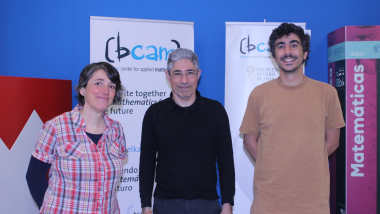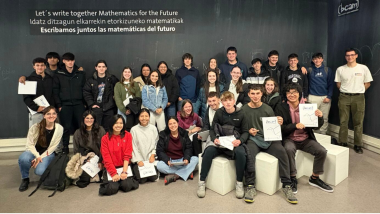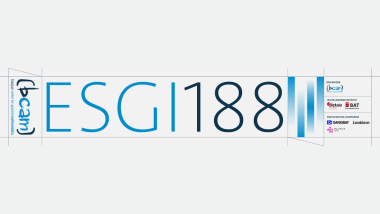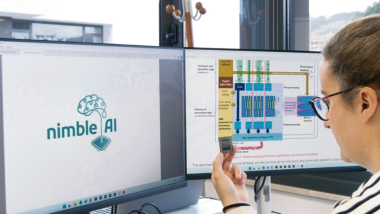The SOMMa network shows its rejection of the fact that mathematics may no longer be compulsory in the last years of high school education
This alliance of centers and units of excellence accredited by the Ministry of Science to which BCAM belongs, has joined the request of 25 scientific societies to to maintain this discipline as one of the common and compulsory subjects in the new education law
The alliance of Severo Ochoa centers and María de Maeztu Units (SOMMa), to which the Basque Centre for Applied Mathematics - BCAM - belongs, has shown its rejection of the education law that could mean that mathematics would not be a compulsory subject in some modalities of baccalaureate, the 2 courses prior to university.
Representatives for the alliance have published an article in the newspaper El País, on behalf of SOMMa, in which they defend the "unquestionable strategic value" of mathematics and the great risk that would suppose the decline of mathematical training of students. The text, entitled "A Pillar for the Future", also stresses the importance of this discipline when it comes to interpreting and responding effectively to the challenges posed by reality: "It is clearly inconceivable that the training of future technologists, economists or sociologists doesn’t include mathematics, which is the basis of scientific knowledge".
This response from the scientific community has arisen after the Ministry of Education and Professional Training introduced a change in the text of the new education law (Lomloe) that eliminates Mathematics as one of the common subjects in the last years of high school. In this way, the ministry leaves the structure of the different forms of the baccalaureate in the hands of a royal decree to be developed later on, which will specify which subjects are specific to each branch. Specifically, following the controversy, Education has reported that "the further development of the law will consider Mathematics in the scientific and social baccalaureate as compulsory subjects as they are now".
The Spanish Royal Mathematical Society (RSME) and the Spanish Committee for Mathematics (CEMat) have also shown their concern about this change introduced in the text of the new education law, defending the need to "support the teaching of mathematics and not leave its regulation to a decree exposed to political ups and downs". Together with 25 other scientific societies, the RSME has written to all parliamentary groups to include their request in the amendments to the new law, which are still being processed in the Congress.
Related news
About the center
About the center




